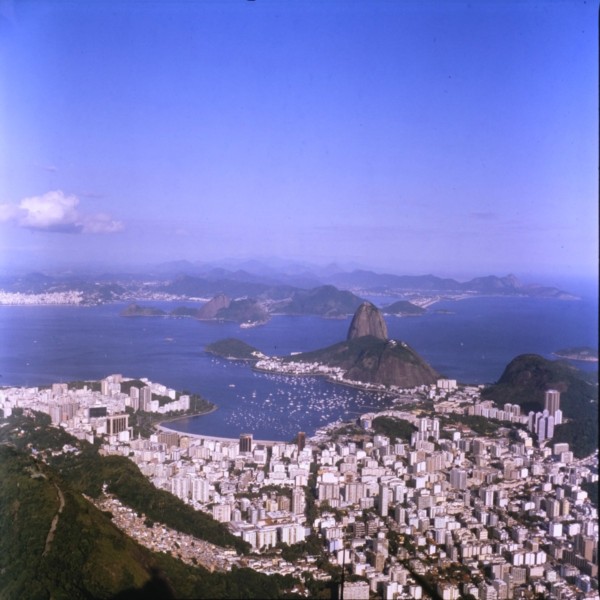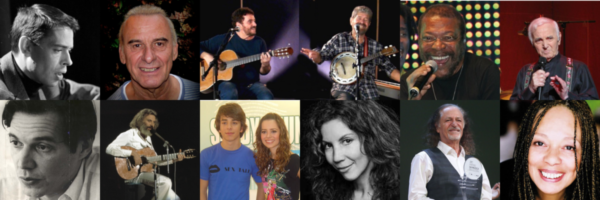EFBA will take you on a musical trip with French songs from around the world. First stop: Brazil!
It is no secret that France has had strong influence in the whole world through its history, culture, politics, and economy. During the French colonial empire, the country established and spread its language to different territories and continents. Through music and songs, this blog post series will explore the presence of the French language in places where the powerful empire did not settle its command. How is Francophone music perceived and what influences does it have in people’s choices, whether they are looking to connect with their emotions or just have a soundtrack for a particular moment?
How many times have you listened to songs in different languages, and even tried to sing along while not necessarily knowing what the lyrics are saying? Well, this is very common due to the so-called “universal language” of music.

Rio de Janeiro, the birthplace of MPB
We begin the list of countries that we will explore in this musical series with Brazil (a former Portuguese colony with Portuguese as the official language). Brazil is well known as the birthplace of Bossa Nova, and Brazilians see music as one of the most important arts, part of the country’s culture and education. During the beginning of the 20th century, Brazil was experiencing the first steps of a new music movement that later became MPB (Música Popular Brasileira). Different from folk music, MPB drew its initial inspiration from France – the language, culture, literature, and practice of bringing clear signs of distinction and ideology in its lyrics.
But how do Brazilians perceive songs in French? The French language in Brazil is perceived as a pleasant, sophisticated, romantic, and harmonious rhythm. Several French songs became famous in Brazil along the years, and these melodies also have confirmed presence on the radio and in playlists, film soundtracks, TV shows… including the famous Brazilian telenovelas (soap operas)!
One of the most famous songs is “Ne me quitte pas” by Belgian singer Jacques Brel. Most Brazilians associate this song with their most romantic moments. Versions of songs sung in French and Brazilian Portuguese are also part of this connection between these two countries. The singer Michel Fugain recorded a French version of the Brazilian song “Você abusou,” originally sung by Antônio Carlos e Jocáfi, which was called “Fais comme l’oiseau.” Similarly, “Boemia,” sung by Samba singer Martinho da Vila, is a Brazilian version of the original song “La Bohème,” famous in the voice of French-Armenian singer Charles Aznavour. Another famous song, “Águas de Março” by Antônio Carlos Jobim, became “Les eaux de Mars” in the French version and was sung by several singers, including Georges Moustaki.
Brazilian teen phenomenon Sandy & Junior also explored the French language with their songs “L’amour… ce remède” and “Le pire des mots,” expanding the reach of French to Brazilian teenagers. Bia’s album “La mémoire du vent” (1997) mostly included French tracks, such as “Le Chevalier”. Alceu Valença managed to give a delicate touch to his song “La Belle de Jour” with just a short sentence in this perceived romantic language. Last but not least, songs such as “De Pigalle à New-York”, “Avec le temps”, and “L’homme à l’oreille coupée” came to life with the beautiful voice of Brazilian singer Marcia Maria, bringing the sophisticated French language rhyme to MPB, one of the most important Brazilian music genres.

Jacques Brel, Michel Fugain, Antônio Carlos e Jocáfi, Martinho da Vila, Charles Aznavour
Antônio Carlos Jobim, Georges Moustaki, Sandy & Junior, Bia, Alceu Valença, Marcia Maria
Do you know any other French language songs with a Brazilian connection? Feel free to share your suggestions in the comments! For a full list of songs, check out our Youtube playlist here.

